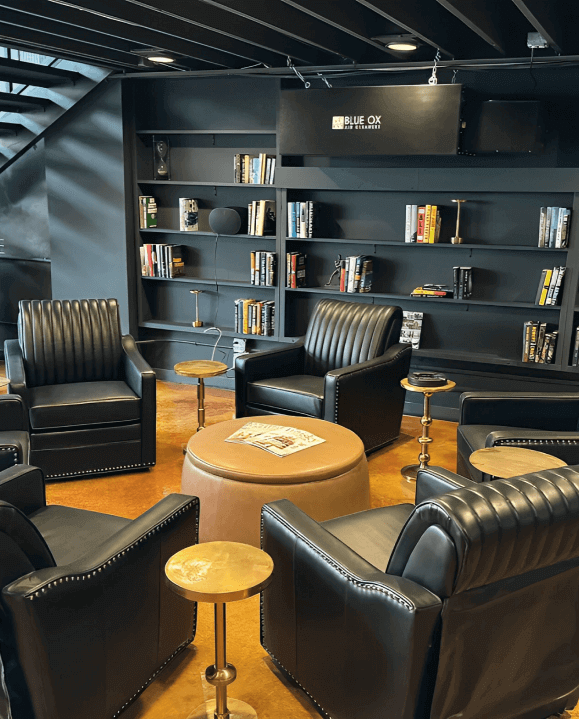
HVAC Air Filters vs. Smoke: What You Need to Know
We often overlook the importance of indoor air quality, but it directly impacts our health. The average American spends up to 90% of their time indoors. EPA studies show that indoor air can be more polluted than outdoor air, making it crucial to prioritize clean air.
Air quality has become an increasing concern, especially with the rise in wildfires that release large amounts of smoke into the air. Wildfire smoke can infiltrate homes and businesses, posing serious health risks. Equally concerning is indoor smoking—whether from cigarettes, cigars, or other tobacco products. This smoke, with its complex mix of chemicals and particulates, lingers in the air and settles on surfaces, compromising indoor air quality.
Both wildfire and indoor tobacco smoke can irritate the eyes, cause respiratory problems, and worsen existing health conditions. What many people don't realize is how smoke particles can easily seep through small openings and ventilation systems, making it challenging to maintain good air quality.
Many turn to HVAC air filters to help manage air quality. However, these filters are not designed to effectively filter out smoke particles.
Limitations of Standard HVAC Filters
While HVAC filters play a critical role in general air filtration, they fall short when it comes to dealing with smoke particles. Here’s why:
Particle Size Mismatch
Smoke particles, especially from wildfires and tobacco, are incredibly small (0.1 to 1 micron). Standard HVAC filters (typically MERV 1-8) are designed to capture particles of 3 microns or larger, which means many smoke particles can pass through.
Inadequate Filtration Efficiency
Even filters with higher MERV ratings (9-12) may have less than 50% efficiency for smoke-sized particles.
Lack of Gas Filtration
Standard filters don’t address the gaseous components and VOCs (volatile organic compounds) in smoke.
Overloading and Reduced Efficiency
During heavy smoke events, filters quickly become overloaded, making them less effective.
Air Bypass
In many HVAC systems, some air can bypass the filter through gaps or leaks in the ductwork.
Ventilation Challenges
HVAC systems that bring in outside air can inadvertently introduce more smoke during smoke events.
The Role of Air Filtration in Commercial and Residential Spaces
Air filtration is crucial for maintaining safe and healthy environments, whether in commercial or residential spaces. For businesses, however, the challenges are more complex, making efficient air filtration systems even more essential.
From manufacturing facilities to cigar lounges, businesses must manage airborne pollutants, meet regulatory standards, and ensure the safety of both employees and customers.
Ensuring Workplace Health and Safety
Commercial air filtration systems help eliminate contaminants such as wood dust, welding fumes, and tobacco smoke, ensuring a safe environment. These systems continuously purify the air, supporting healthier workspaces, reducing sick days, and boosting employee morale.
Regulatory Compliance
Businesses must adhere to air quality standards set by OSHA, NIOSH, and other authorities. Commercial air filtration systems are built to meet these regulations, helping companies avoid penalties and maintain operational licenses.
Energy Efficiency and Cost Savings
While investing in quality air filtration systems can be costly upfront, they offer long-term savings by improving energy efficiency and reducing HVAC maintenance needs.
Versatility Across Industries
Air filtration systems are designed to handle a range of contaminants, making them versatile for environments like woodshops, welding facilities, and cigar lounges. Their adaptability makes them valuable in diverse commercial applications.
Enhancing Customer Experience
For customer-facing businesses, such as restaurants, hotels, and retail spaces, air filtration helps create a comfortable atmosphere, enhancing the overall customer experience and satisfaction.
Complementing Ventilation Systems
Although air filtration and ventilation serve different roles, they work together to enhance air quality. While ventilation introduces fresh air, filtration systems clean and purify the existing air, ensuring optimal indoor air quality.
Commercial vs. Residential Applications
While both commercial and residential spaces benefit from air filtration, commercial smoke eaters often come with more advanced features designed for larger, high-traffic environments:
- High-capacity systems for expansive areas
- Advanced filtration technology for superior air purification
- Durable, industrial-grade construction
- Customizable solutions to meet specific industry regulations
- Multi-stage filtration for comprehensive contaminant removal
Residential spaces can also benefit from air filtration, especially when adapted from commercial solutions. Homeowners can enjoy:
- Multi-stage filtration for enhanced air cleaning
- Compact units designed for smaller spaces
- Tailored solutions for room-specific needs
A family transformed their garage into a smoke-free entertainment space using a Blue Ox unit. This residential smoke eater case study highlights how commercial-grade air filtration technology can address home air quality challenges.
Blue Ox Air Cleaners provide solutions that bridge the gap between commercial and residential air filtration needs. With over 40 years of experience, we’ve developed systems that outperform traditional air cleaners in effectiveness and efficiency. Contact our specialists to find the perfect air filtration solution for your space.
You may also like:
• The Difference Between Air Filtration & Ventilation
• What is Indoor Air Quality (IAQ) & How Does It Apply to You?
• 5 Questions to Ask When Choosing an Air Filtration System

Copyright © 2025 | Blue Ox Air Cleaners. A division of Air Cleaning Specialists, Inc.
